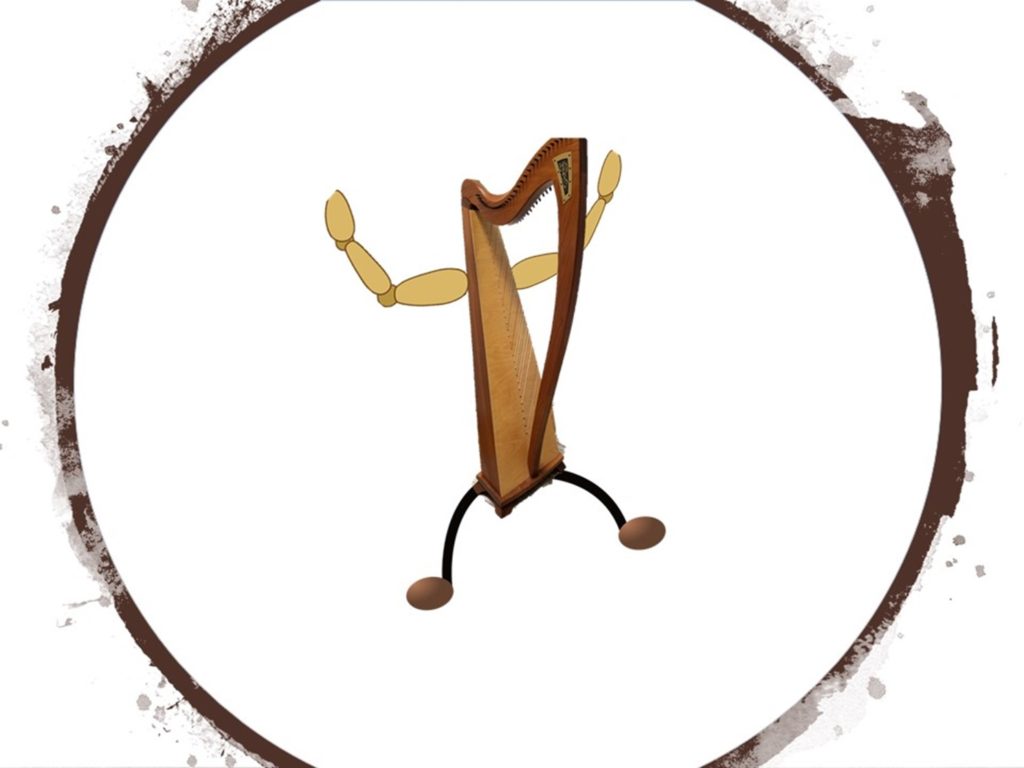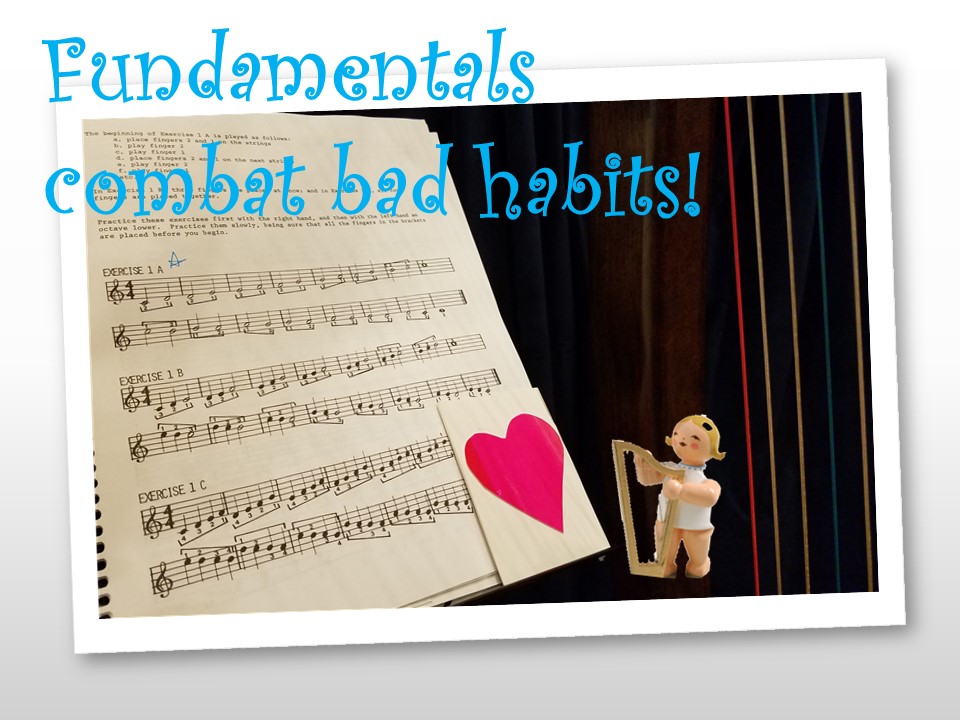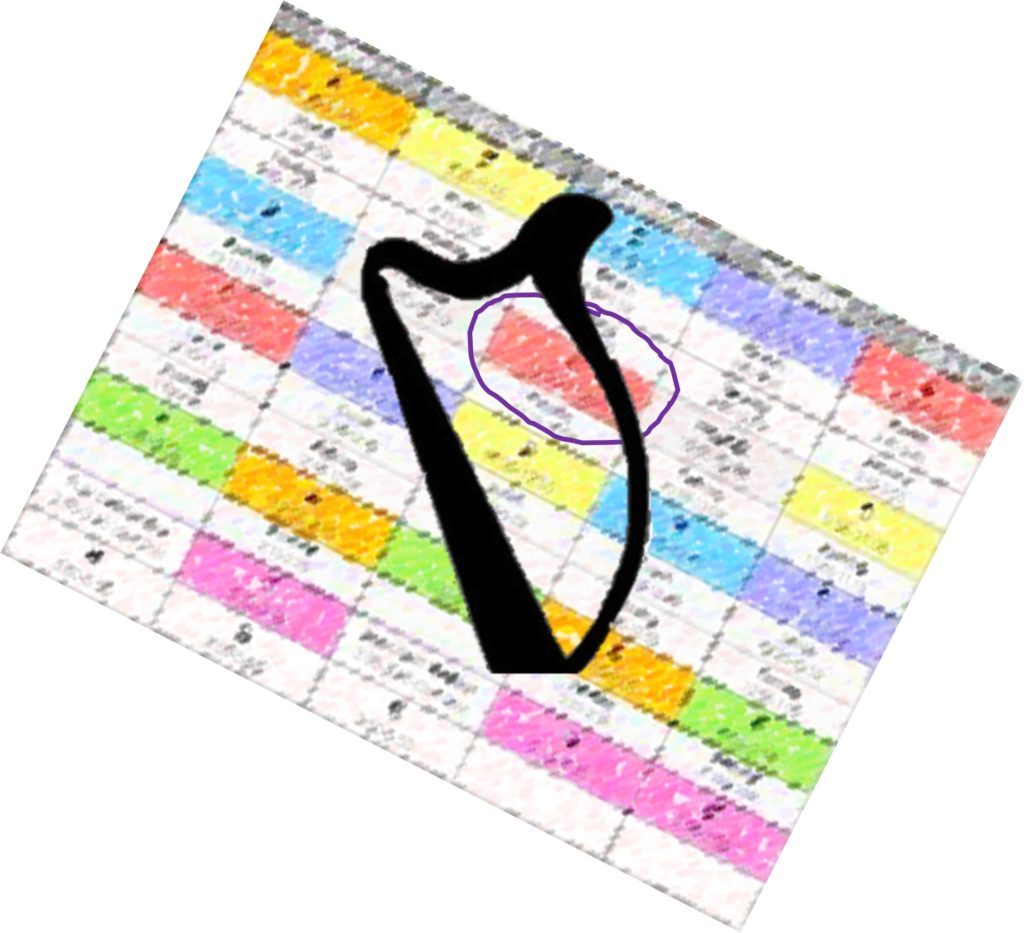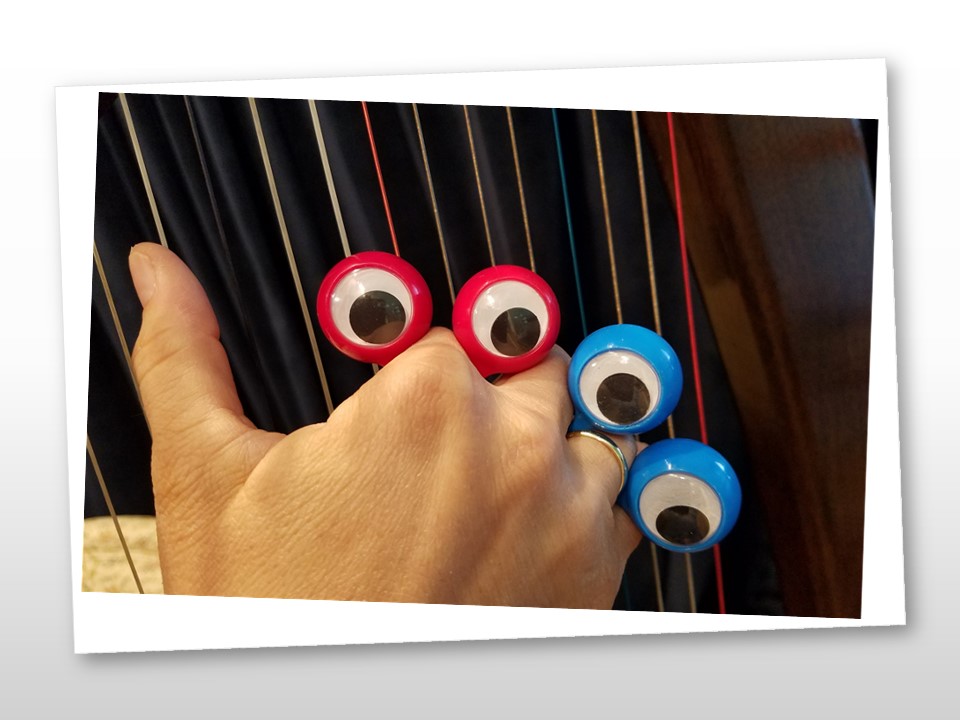It’s stinkin’ hot. It’s boiling! It’s August. And you know what that means? It’s nearly Autumn!
Cooler days. Clearer skies. Longer nights. And, oh yeah, the winter holidays are coming. Whether you have a house full of family for Thanksgiving or if you have booked a full schedule of holiday party gigs – you will need to be ready. And now is the time!
Let’s face it, no matter the reason you play, it is easier to play if you are ready – and if you feel ready. Nope, this is not another post on practicing. Rather, let’s take a broader look. The mere act of sitting and bringing the harp to you requires an element of strength, stamina and self-possession (read balance – but didn’t that string of S words feel good to read?!).
Most of us are not about to build and keep a rigorous workout routine. But, what if it helped you to play better, longer, with less fatigue? Then it would be worth it!
 Now, I’m not a physician, a physiologist, or a physical therapist*. Ok, really, the word “physical” may actually cause me to break out into hives! But, a little bit of physical exertion could make all the difference in being able to practice (or perform) for as long as you like at each sitting – without your back hurting, feeling exhausted, or falling flat before your time is over (any of which is embarrassing).
Now, I’m not a physician, a physiologist, or a physical therapist*. Ok, really, the word “physical” may actually cause me to break out into hives! But, a little bit of physical exertion could make all the difference in being able to practice (or perform) for as long as you like at each sitting – without your back hurting, feeling exhausted, or falling flat before your time is over (any of which is embarrassing).
So, what should you do? Well, first, consult your physician – no doing stuff that’s not good for you (or worse, stuff that’s contraindicated for your condition!). Assuming you are well enough, consider adding a few things to your day. All of them are brief. Any one of them may help. If you’re an overachiever, you could try adding all of them!
- Go for a walk. Walking is good for many reasons. It’s a gentle exercise. You already know how to do it. You probably already have the shoes. Head out for 30 minutes. If you’re a total couch spud or have a condition, start where you are and build up to 30 minutes. Research suggests that 30 minutes a day will be enough to help you become more fit. If you’re not sure what to do, there are loads of programs available online that can suggest an appropriate buildup and level of exertion. Don’t want to walk outside? Go to the pool and walk there (pool walking is easier on your joints and – did I mention that it’s hot? it’s certainly cooler to walk in the pool!). Or you can get on a treadmill. Walking is good on many levels – good for your heart, works your body, gets you some fresh air. It can also give you a chance to clear your mind. And it can be part of your practice – the rhythm allows you to think about your tunes with an active metronome.
- Stretches. I’ve talked about stretching before [here and subsequent weeks] and it bears repeating. But I wont’ – click the link and read those! Stretching helps you recover but also helps overcome the stultifying sameness of sitting all day (even if you’re sitting at the harp!).
- Calisthenics. If you’re of a certain age, you might remember calisthenics from PE class. No, it doesn’t require a lot of equipment, space, or time. Just some exercises that help make you beautiful and strong (from the Greek kali – beauty and sthenos – strong). You know all these – pushups (full on, or from your knees, or against the counter or wall – it’s not a contest! Do what you can); squats (like you’re sitting on a chair but not using your arms or moaning on the way down or up); jumping jacks; crunches or planks; and maybe some arm curls and extensions, and a few back rows. You don’t have to be all CrossFit about it! Just move and work a little everyday. That will help you become stronger which will improve your harp playing and may impact other parts of your life too (carrying laundry? groceries? moving your harp? A load of things will be easier). You can put these all together – walk to the park and use the playground equipment to exercise – or you can also do them as they fit into your day – just as long as you fit them in!
It does help to add these activities to your journal so you can see how you’re coming along – to see your strength improvements (and if you wall off the wagon – you can see by how much – and how quickly you came to where you were before your wagon departed…and how quickly you can get back on it!). Noting it in your journal will also help capture when you notice the impact of this to your playing – as well as when you notice you just feel better.
You don’t have to be a gym rat or an aerobics bunny to benefit – but your playing will tell the story of how you are staying strong!




